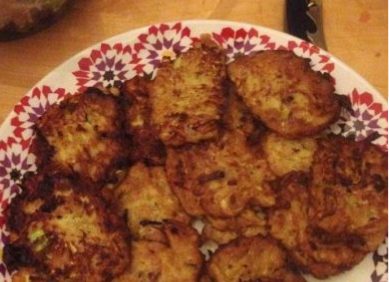Hanukkah in the Holy Land: Darkness and light in a changing Israel by Ofek Ravid
Hanukkah, or the festival of lights, is celebrated yearly on the 25th of Kislev on the Jewish Calendar. Hanukkah is not mentioned in the Old Testament, and is not a holiday with any strict commandments. It was added to our collective cannon by the Jewish Sages and the holiday has become one of modern Judaism’s main events. It is an eight day worldwide celebration which is twofold: One, to celebrate the inauguration of the Jewish temple, lasting eight days because a lamp was able to stay lit for eight days with one day’s worth of oil. The second is to celebrate the Jewish national revival and rebellion against oppressive forces, most notably the Antiochus decrees, attempts by a Hellenistic king to wipe out Jewish tradition in the Holy Land. The common themes of the holiday are the fight of darkness versus light, evil versus good, and the preservation of identity amidst repression. Throughout my life, it has constantly been my favorite holiday, both because it is a tradition to cook food in lots of oil, but also because of the ideological underpinnings. When I was eleven, I recall having a latke eating competition with an Arab friend, eating fourteen, losing, and having a horrible stomach ache afterwards.
So much for Jews being better at celebrating our own holidays.
As I grow older and become more critical of what I am taught, new questions arise. The myths of the holiday are being constantly questioned by new researchers, which makes everything even more confusing. The Maccabees, adored in Israel and the Jewish world for their revolt against evil occupiers trying to destroy their religion, according to some sources, were a fanatic, Theo-fascist force. In historical sources the populations living at the time in Eretz Yisrael are separated into three: The Greeks, Hellenized Jews (Jews who had taken some traditions from Hellenistic culture), and Maccabee Zealots. The war was led by the zealot Jews against the Greek military power but also against secularized, moderate Jews. The 30-year revolt by the Maccabees allowed them to take control, and build a short lived kingdom. They killed in mass anyone who did not think like the rulers, mostly members of non-Jewish communities. This, for better or for worse, is part of what we glamorize in our story.
Hanukkah is a political holiday. It is used every year by politicians in power to rally people around, playing on the Jewish need for survival, and using the event to remind the public about ongoing threats, real or made up. Both Right and Left have historically used the day to stoke fear and remind the Jewish people that we are alone, in a fight against our neighbors, of different religions, nationalities and ethnicities. That being said, the narrative is currently shifting and changing.
In the past year, far Right groups have used the opportunity of the holiday’s vicinity to Christmas to lash out against Jewish-Arab coexistence. Donald Trump’s appointed ambassador to Israel, David Friedman has recently called Jewish campus activist group J-street “non-Jewish.” Activists (leftists only) supporting unpopular opinions in the Israeli state are given the derogatory term “Mityaven”, or Hellenized Jew, and are shamed in public. Also, through the years, the role of God has been granted a bigger role in the story, shifting from a story of a people re-creating itself through struggle(God is not mentioned in the first book of Maccabees),to a story of divine intervention, used today to excuse the occupation of the West Bank), and politicize random natural events.
In my opinion, it is not time to give up on Hanukkah, despite all of the madness. The ethos of Hanukkah lived for such a long time because these myths are part of the eternal and utterly important struggle of humans for freedom, equality, and justice. Alongside eating oily foods and receiving gifts granted each day to millions of Jews, it is time to rethink the narrative, or our political use of it. We need to use Hanukkah for good. We have so much important actions to do in this world in supporting freedom, such as fighting religious intolerance and bigotry in my town, Haifa. There’s so much to do in nearby Syria, in further away Europe, and even further the United States. It is time to support the nonviolent forces of light in Area C in the Occupied Palestinian territories struggling for access to electricity and running water. It is time to scare away the darkness we see coming from Lahava and other racists, and it is time to shout out the freedom and equality we want to see in our land. In the words of the great A.D. Gordon, Jewish worker and labor organizer, “There will be no victory of the darkness over light, unless we realize the simple fact: That instead of fighting darkness, we must bring up the light.”




Leave a Comment
Want to join the discussion? Feel free to contribute!